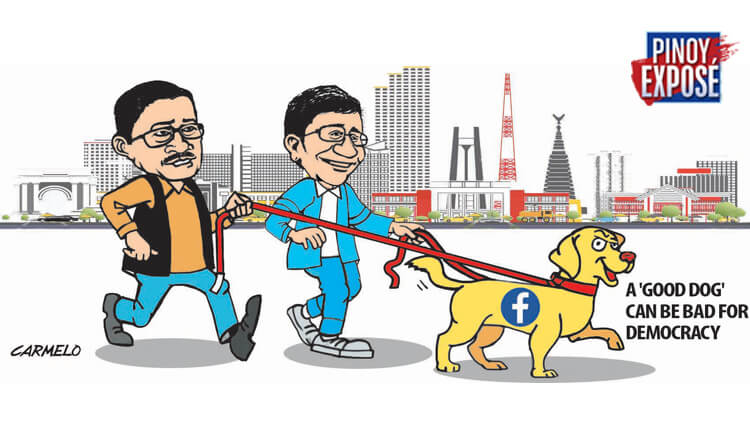LAST September 22, 2020, Nathaniel Gleicher, head of Facebook’s security/cybersecurity policy, announced the removal of 212 accounts, 42 pages, 9 groups and 26 Instagram accounts based in China and the Philippines, allegedly for violating its policy against ‘coordinated inappropriate behavior’ (CIB).
And immediately, two quarters are gloating over the fact—Rappler and the front organizations of the Communist Party of the Philippines.
FB Philippines, in subsequent meetings with some Philippine officials, claimed that in its playing above the people’s constitutional right to free expression, it is not actually looking at the content of the targeted accounts but rather on the “behavior” of these accounts or, if these accounts are “coordinating” their post “on behalf of a foreign or government entity.”
If not for the fact that Gleicher has not made known his bias for Maria Ressa of Rappler—he twitted that Ressa’s conviction for criminal libel last June has become a “dark, dark day for press freedom” in the Philippines—and if also not for the fact that Rappler is FBs “factchecker” here, FB’s attempt at “plausible deniability” would have sounded genuine.
Oh, and did we mention that one of FB’s Philippine officials, Clare Amador, head of public policy, used to be the undersecretary of Butch Abad at the Department of Budget and Management during the “Dilawan” (read: LP) presidency of Noynoy Aquino?
And recent Philippine historical records of course proved, beyond reasonable doubt, that the Dilawans have been a close confederate of the communists dating back to the CPP’s founding date.
Facebook has become one of the world’s most influential “non-state actors.” And over this fact, it should exercise this power responsibly and with transparency.
But as the investigation over its role in the Cambridge Analytica scandal that rocked the global scene just two years ago (in 2018) has shown, its moral compass, to include that of its founder, Mark Zuckerberg, is somehow questionable.
Indeed, other countries, China for example, would not want FB going on a rampage, so to speak, in its own cyber space because of its potential as an entry point for destabilization.
But China is a socialist state and we are not.
FB has been given the freedom to do nearly everything it wants here on the belief that by allowing it do so, it is not only helping people to become “closer together” but is also heloing push the economy forward in this Digital Age.
Along the way, people expect FB to also help in developing a healthy discussion of vital issues and of helping people distinguish the truth from the lies.
By siding with the communists and an online news site in the pay of foreign powers, FB has done the contrary.
Seen in this light and from where FB officials are coming from, FB could very well be the biggest threat to our democracy and a deadweight in our quest for national unity.



